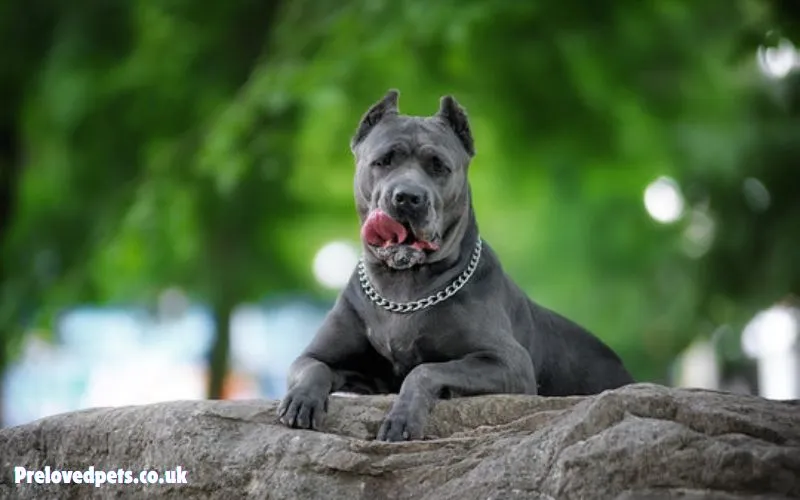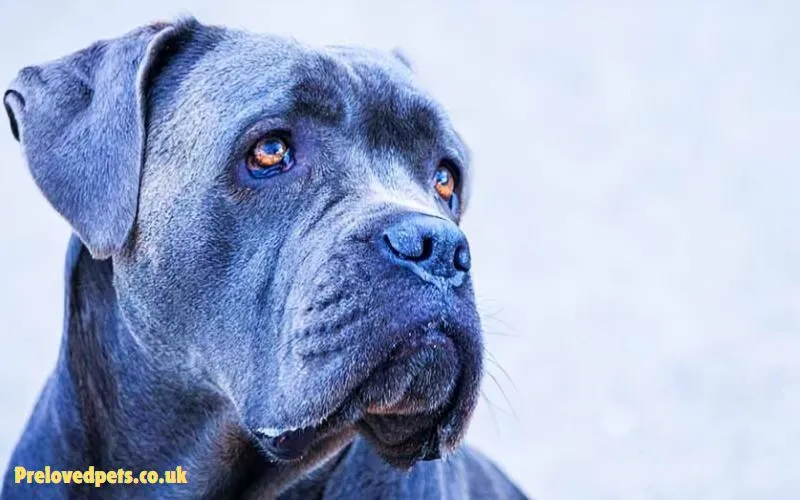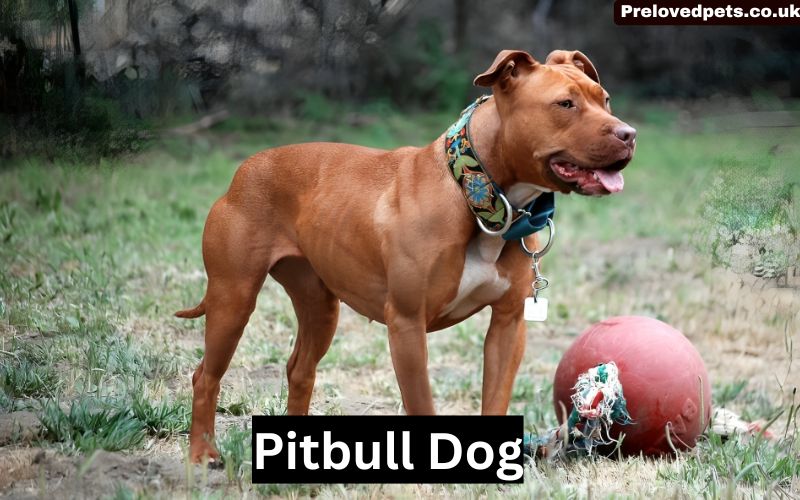The Blue Cane Corso, a majestic and powerful breed, has captured the hearts of dog enthusiasts worldwide. Among its many color variations, the Blue Cane Corso stands out for its striking appearance and unique characteristics. This article delves into the history, physical traits, temperament, care requirements, and health considerations of the Blue Cane Corso, providing a thorough understanding of this remarkable breed.
History and Origin
Ancient Roots
The Cane Corso, also known as the Italian Mastiff, has a storied history that dates back to ancient Rome. These dogs are believed to be descendants of the Roman Molossus, a breed used in warfare and hunting. The Cane Corso was bred for strength, agility, and loyalty. These dogs were used in various capacities, including hunting large game, guarding property, and serving as war dogs. The breed’s name derives from the Latin “Cohors,” meaning “guardian” or “protector,” reflecting its primary role throughout history. Roman soldiers relied on these powerful dogs to guard their camps and accompany them in battles, where their strength and bravery were invaluable.
Near Extinction and Revival
By the mid-20th century, the Cane Corso faced near extinction due to changes in farming practices and the ravages of war. The breed’s numbers dwindled as modern agricultural methods reduced the need for large, protective farm dogs. However, dedicated Italian breeders embarked on a mission to revive the breed, preserving its unique characteristics and ensuring its survival. These breeders scoured the Italian countryside to find purebred specimens and began a rigorous breeding program to restore the breed’s population and health. The breed gained official recognition from the Italian Kennel Club in 1994 and later from the American Kennel Club (AKC) in 2010, ensuring its preservation and continued popularity.
Physical Characteristics

General Appearance
The Cane Corso is a large, muscular dog with a commanding presence. Males typically stand between 25 to 27.5 inches at the shoulder and weigh between 99 to 110 pounds, while females are slightly smaller, standing 23.5 to 26 inches and weighing 88 to 99 pounds. The breed is well-balanced, with a broad chest, strong neck, and powerful limbs. The overall impression is one of strength and agility, qualities that have been carefully bred into the Cane Corso over centuries.
The Blue Coat
The “blue” in Blue Cane Corso refers to a specific coat color that ranges from light gray to a deep slate. This coloration is the result of a dilute gene affecting the black coat color, giving the dog a unique and striking appearance. The blue coat can also have brindle patterns, adding to the dog’s visual appeal. The short, dense coat is easy to maintain and contributes to the breed’s overall elegance. The blue coloration, while striking, does not affect the dog’s health or temperament, making it purely a cosmetic trait.
Distinctive Features
The Blue Cane Corso’s expressive eyes can range from dark brown to light amber, harmonizing with its coat color. The breed’s ears are typically cropped in the United States, giving the dog a more alert and intimidating look, though natural ears are becoming more accepted. The tail is usually docked to about one-third of its original length, a practice rooted in the breed’s working history to prevent injuries during hunting and guarding. The Cane Corso’s head is broad and imposing, with a well-defined stop and a powerful jaw, further enhancing its commanding presence.
Temperament and Personality
Loyal and Protective
The Cane Corso is renowned for its loyalty and protective nature. This breed forms strong bonds with its family and is known to be particularly good with children. Its natural guarding instincts make it an excellent protector, though this also means early socialization and training are crucial to ensure a well-adjusted adult dog. The Cane Corso is naturally wary of strangers, which makes it an effective guard dog, but this trait also necessitates careful introduction to new people and situations.
Intelligent and Trainable
Cane Corsos are highly intelligent and eager to please, which makes them relatively easy to train. However, they can also be stubborn and independent, requiring a confident and consistent handler. Positive reinforcement methods, combined with firm and fair leadership, are essential to bring out the best in this breed. Training should start early and be a lifelong commitment, as the Cane Corso thrives on mental stimulation and structure.
Socialization Needs
Proper socialization is vital for the Cane Corso to develop into a well-rounded dog. Exposure to various people, environments, and other animals from a young age helps mitigate any potential aggressive tendencies. A well-socialized Cane Corso is typically calm, confident, and well-mannered in various situations. This breed benefits from regular social interactions and should not be isolated, as this can lead to behavioral issues.
Care and Maintenance
Exercise Requirements
The Cane Corso is an active and energetic breed that requires regular exercise to stay healthy and happy. Daily walks, play sessions, and mental stimulation are essential to prevent boredom and destructive behavior. Due to their size and strength, it’s important to ensure they are well-trained on a leash and have a secure area to roam. Engaging in activities such as obedience training, agility, and protection work can also help satisfy the breed’s need for mental and physical exercise.
Grooming
The Blue Cane Corso’s short coat is low-maintenance, requiring only occasional brushing to remove loose hair and keep the coat looking its best. Regular grooming sessions also provide an opportunity to check for any skin issues or parasites. Bathing should be done as needed, typically every few months, or when the dog becomes particularly dirty. It’s also important to maintain proper dental hygiene, trim nails regularly, and clean the ears to prevent infections.
Nutrition
A balanced diet is crucial for the Cane Corso’s overall health and well-being. High-quality commercial dog food, either kibble or wet food, is generally recommended, though some owners opt for raw or homemade diets. It’s important to ensure the diet meets the dog’s nutritional needs, particularly for large breeds, to support healthy growth and development. Owners should consult with a veterinarian to determine the best diet and feeding schedule for their Cane Corso, considering factors such as age, weight, and activity level.
Health Considerations
Like all breeds, the Cane Corso is prone to certain health issues. Common concerns include hip dysplasia, elbow dysplasia, and certain heart conditions. Regular veterinary check-ups, a healthy diet, and appropriate exercise can help mitigate these risks. Responsible breeding practices, including health testing for genetic conditions, are also essential to maintain the breed’s overall health. Prospective owners should seek out reputable breeders who prioritize the health and well-being of their dogs.
The Blue Cane Corso in Family Life
Family Compatibility
The Cane Corso is a family-oriented breed that thrives in a household where it can be an active part of daily life. Its protective nature makes it an excellent guardian, while its gentle disposition with family members, especially children, makes it a loving companion. However, due to its size and strength, supervision is recommended during interactions with young children. The Cane Corso is known for its patience and tolerance with kids, but proper training and socialization are key to ensuring a harmonious relationship.
Training and Discipline
Consistent training and clear boundaries are essential for the Cane Corso. Obedience training from an early age helps establish good behavior and ensures the dog is manageable in various situations. Advanced training, including protection work or agility, can also provide mental stimulation and strengthen the bond between the dog and its owner. Owners should use positive reinforcement techniques and avoid harsh methods, as the Cane Corso responds best to firm but gentle guidance.
Interaction with Other Pets
With proper socialization, the Cane Corso can coexist peacefully with other pets. Early exposure to other dogs, cats, and small animals helps the Cane Corso learn to interact appropriately. However, due to its strong prey drive and dominant nature, supervision is necessary, particularly with smaller animals. Introducing a Cane Corso to a household with other pets should be done gradually and with careful monitoring to ensure positive interactions.
The Blue Cane Corso in Various Roles
Working Dog
The Cane Corso’s history as a working dog continues in modern times. Its strength, intelligence, and trainability make it suitable for various roles, including protection, search and rescue, and even therapy work. The breed’s versatility and eagerness to work with its handler are highly valued traits. Cane Corsos excel in roles that require both physical prowess and mental acuity, making them ideal candidates for tasks such as tracking, herding, and even competitive sports.
Show Dog
The Blue Cane Corso’s striking appearance and regal demeanor make it a popular choice in dog shows. The breed’s conformation to the standard, combined with its confident and alert presence, often impresses judges and spectators alike. Participation in shows also helps promote responsible breeding and the preservation of the breed’s unique characteristics. Show dogs must undergo rigorous training and socialization to perform well in the ring, showcasing their physical and temperamental qualities.
Companion Animal
Above all, the Cane Corso excels as a companion animal. Its loyal and affectionate nature endears it to families and individuals alike. The bond between a Cane Corso and its owner is typically very strong, with the dog often displaying a keen sense of empathy and understanding. This breed is known for its intuitive nature, often sensing the emotions of its family members and providing comfort and companionship.
Challenges of Owning a Blue Cane Corso
Space Requirements
The Cane Corso is a large breed that requires ample space to move and exercise. A home with a large yard is ideal, though the breed can adapt to smaller living spaces provided it receives sufficient exercise and mental stimulation. Apartment living is possible but may require extra effort to meet the dog’s physical needs. Prospective owners should consider their living situation and lifestyle before bringing a Cane Corso into their home.
Potential Aggression
While the Cane Corso is generally well-mannered and calm, its protective nature can sometimes manifest as aggression, particularly towards strangers or perceived threats. Proper training, socialization, and responsible ownership are crucial to prevent and manage any aggressive tendencies. Understanding the breed’s behavior and body language can also help in anticipating and addressing potential issues. Owners should be vigilant and proactive in addressing any signs of aggression to ensure the safety and well-being of both the dog and those around it.
Time and Commitment
Owning a Cane Corso requires a significant time and commitment. The breed thrives on companionship and does not do well when left alone for extended periods. Potential owners should be prepared for the demands of training, exercise, and socialization, as well as the emotional and financial responsibilities of dog ownership. The Cane Corso is a lifelong commitment, and prospective owners should ensure they are ready to meet the needs of this dedicated and loyal breed.
Conclusion
The Blue Cane Corso is a remarkable breed that combines strength, intelligence, and loyalty in a strikingly beautiful package. Its rich history, versatile capabilities, and affectionate nature make it a cherished companion for those willing to invest the time and effort required to meet its needs. With proper care, training, and socialization, the Blue Cane Corso can be a loyal protector, a gentle family member, and a devoted friend. Whether as a working dog, a show dog, or a beloved pet, the Blue Cane Corso stands as a testament to the enduring bond between humans and dogs, offering both companionship and protection in equal measure. This breed’s unique qualities and unwavering dedication make it a standout choice for experienced and committed dog owners.




